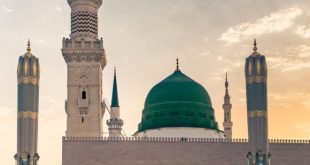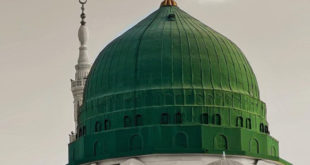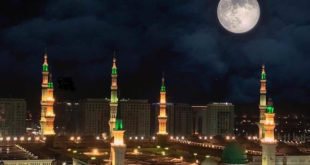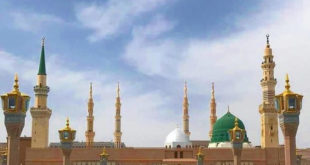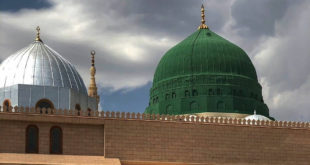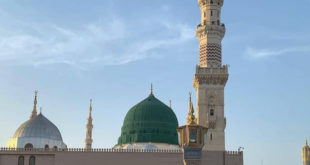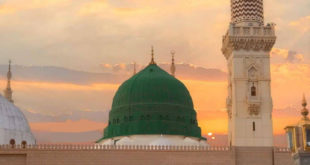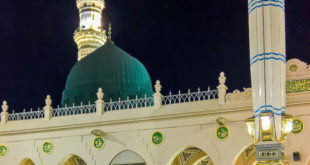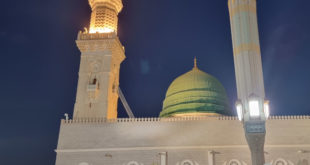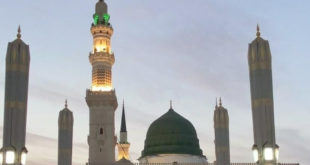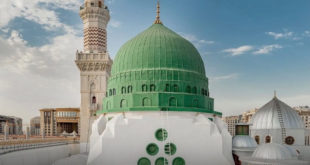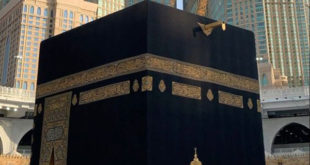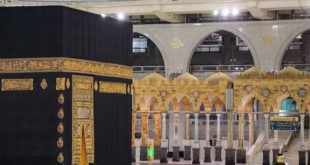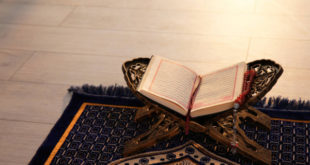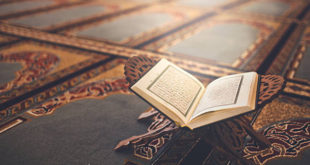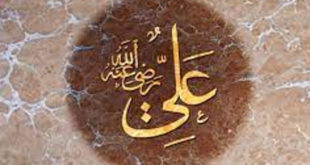Q: Upon which wealth does a person have to pay zakaat? A: Zakaat will be paid on the following: 1. Cash (including the balance of your bank deposits). 2. The market value of the merchandise contained in the share of the company i.e. one will be obligated to discharge the …
Read More »Recent Posts
July, 2011
-
2 July
Zakaat on a person who has debts
Q: Is zakaat compulsory on a person who possesses the nisaab amount but also has unsettled debts? A: The principle of shari’at is that after evaluating one’s zakaatable assets one will deduct his liabilities and debts. If the remaining amount reaches the nisaab, zakaat will be fardh. Examples: Nisaab: R4, …
Read More » -
2 July
Compensating for fasts missed due to illness
Q: Due to illness a person is unable to fast. How does he compensate for the missed fasts? A: A person who is terminally ill and is unable to fast will compensate by giving fidyah for each missed fast. The amount of fidyah is equal to Sadaqatul fitr. If the …
Read More » -
2 July
The obligation of zakaat
Q: Upon whom is zakaat compulsory? A: Zakaat is compulsory upon every muslim, baaligh, sane, free person who possesses the nisaab amount for an entire lunar year. وشرط افتراضها عقل وبلوغ وإسلام وحرية … وسببه أي سبب افتراضها ملك نصاب حولى نسبة للحول لحولانه عليه قال العلامة ابن عابدين – …
Read More » -
2 July
Using a Drip whilst Fasting
Q: Does the use of a drip whilst fasting nullify the fast? A: Using a drip whilst fasting does not nullify the fast. والمفطر إنما هو الداخل من المنافذ (رد المحتار على در المختار ج2 ص395) وما وصل إلى الجوف أو إلى الدماغ من المخارق الأصلية كالأنف والأذن والدبر بأن استعط …
Read More »
-
The Extreme Generosity of Hazrat Talhah (radhiyallahu ‘anhu)
Hazrat Talhah’s (rahdiyallahu ‘anhu) wife, Su‘da bint ‘Awf al-Muriyyah mentioned the following incident regarding her …
Read More » -
Securing the Blessings of Ramadhaan, Umrah and Hajj – The Tolerance of Rasulullah (sallallahu ‘alaihi wasallam) – The Orchards of Love – Part Seventy Three
-
Receiving the title of Al-Fayyadh from Rasulullah (sallallahu ‘alaihi wasallam)
-
Hazrat Talhah (radhiyallahu ‘anhu) Fulfilling his Pledge
-
The Tolerance of Rasulullah (sallallahu ‘alaihi wasallam) – The Orchards of Love – Part Seventy Two
-
Receiving Seventy Rewards
Hazrat Abdullah bin Amr bin Aas (radhiyallahu ‘anhuma) reported, “Whoever sends salutations upon Nabi (sallallahu ‘alaihi wasallam) once, Allah Ta‘ala and His angels will send seventy mercies and blessings upon him in return of his one Durood. Hence, whoever wishes to increase his Durood should increase it, and whoever wishes to decrease his Durood should decrease it (i.e. if he wants to earn great rewards, then he should increase his Durood).”
Read More » -
Increase in Sustenance
-
The Reward of Fasting on the Day of Arafah
-
The Angel that Stands at the Blessed Grave of Hazrat Rasulullah (sallallahu ‘alaihi wasallam) to Convey the Durood of the Ummah
-
Reciting Durood when Entering the Musjid
-
Sunnats and Aadaab of the Host – 2
2. Entertaining and hosting guests is a means of attaining great barakah (blessings) from Allah …
Read More » -
Sunnats and Aadaab of the Host – 1
-
Sunnats and Aadaab which every person needs to adhere to in his individual life – 9
-
Sunnats and Aadaab which every person needs to adhere to in his individual life – 8
-
Sunnats and Aadaab which every person needs to adhere to in his individual life – 7
-
Hazrat Ali (radhiyallahu ‘anhu) – Part Forty-One – Being Sent by Rasulullah (sallallahu ‘alaihi wasallam) to Level the Graves, Destroy Idols and Erase Pictures
Hazrat Ali (radhiyallahu ‘anhu) reports that on one occasion, Rasulullah (sallallahu ‘alaihi wasallam) attended a …
Read More » -
Rasulullah (sallallahu ‘alaihi wasallam) Approving of the Verdict of Hazrat Ali (radhiyallahu ‘anhu) – Part Forty
-
The True Ulamaa – Hazrat Ali (radhiyallahu ‘anhu) – Part Thirty Nine
-
Du‘aa for Assistance in Settling Debts – Hazrat Ali (radhiyallahu ‘anhu) – Part Thirty Eight
-
The Concern of Hazrat Ali (radhiyallahu ‘anhu) regarding Business being Conducted According to the Islamic Principles – Part Thirty Seven
 Ihyaaud Deen An Effort to Revive Deen in Totality
Ihyaaud Deen An Effort to Revive Deen in Totality
























